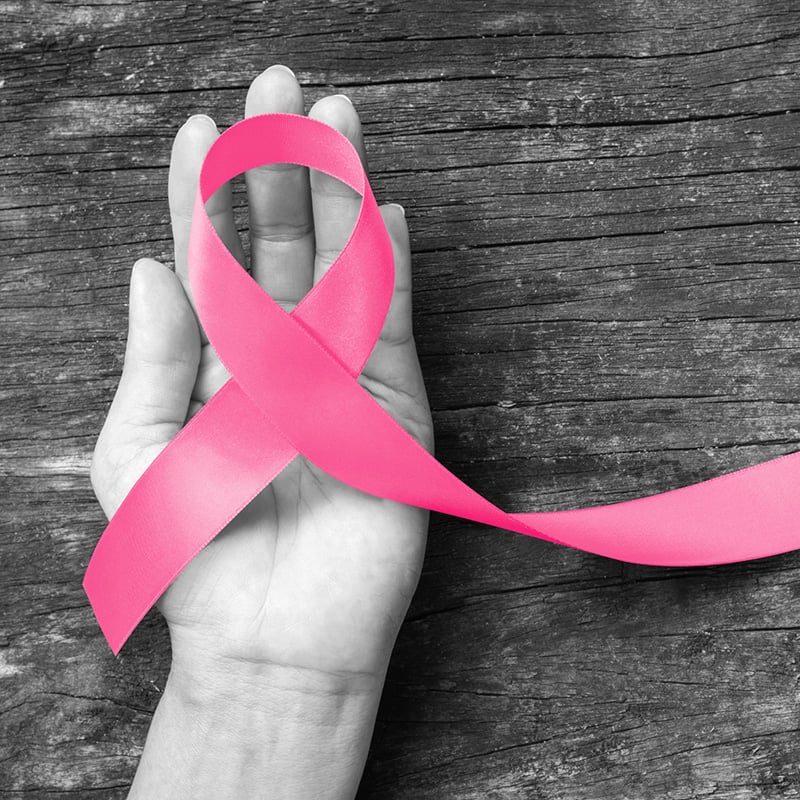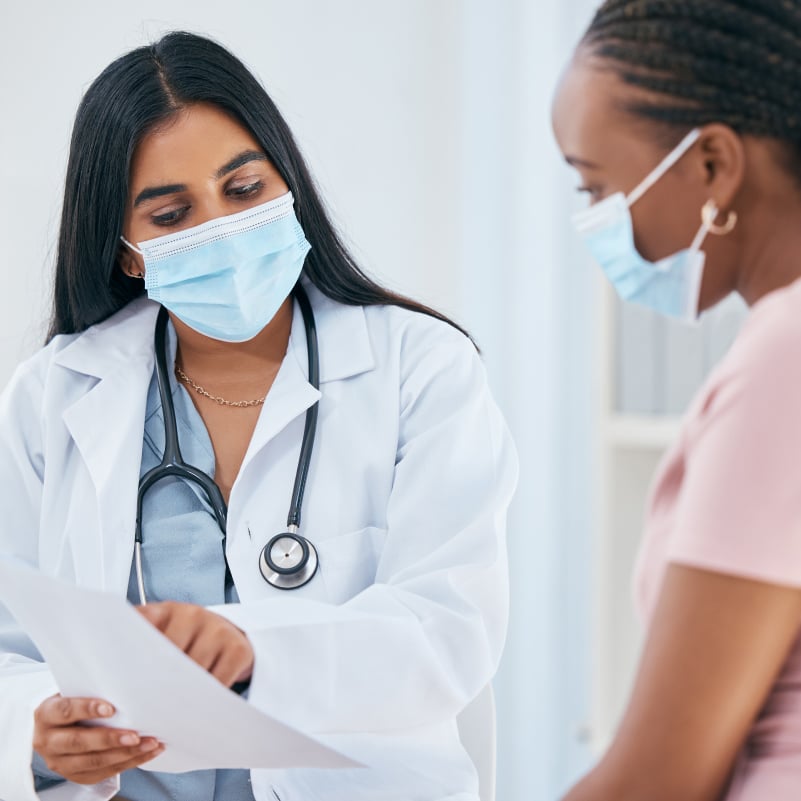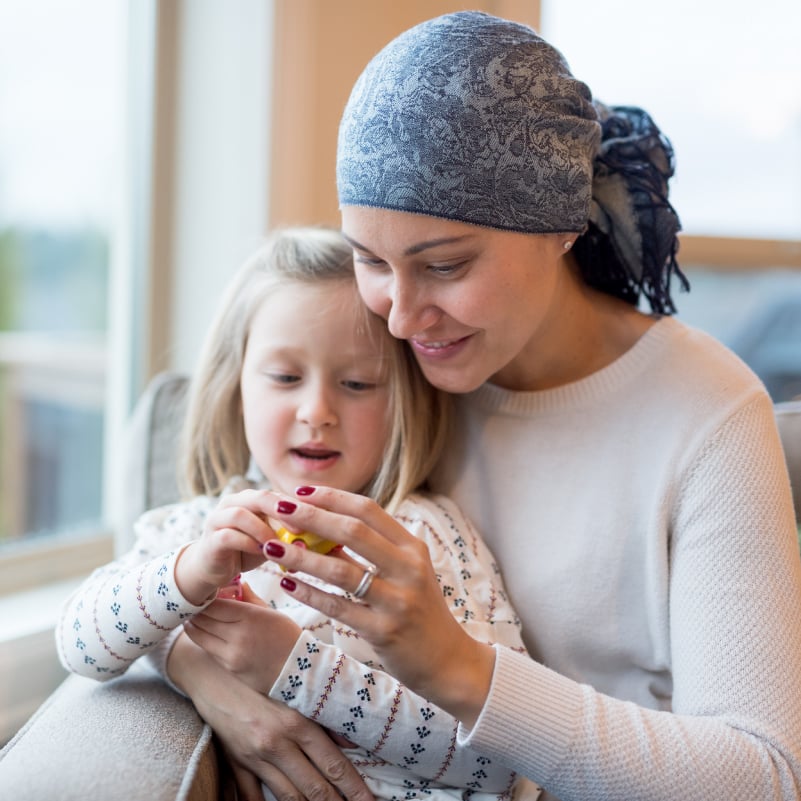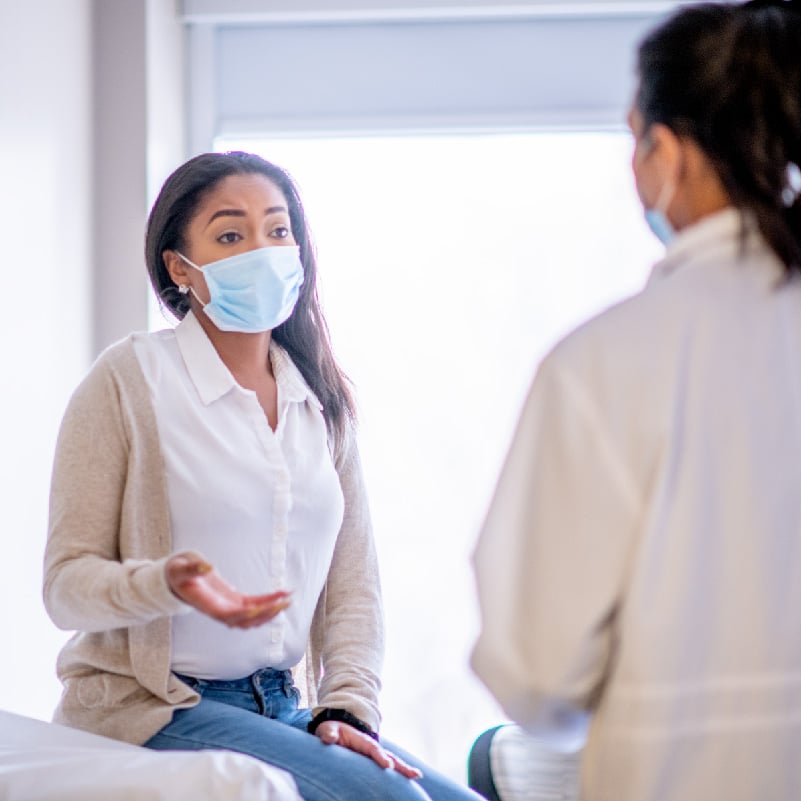At Rochester Regional Health’s Breast Center, we understand a breast cancer diagnosis can often lead to a flood of thoughts, emotions, and questions. One of the biggest questions we get is, What do I do now?
Lori Medeiros, MD, is the Executive Director of the Rochester Regional Health Breast Center and describes who you might meet with following a diagnosis, along with some suggestions of how to prepare yourself for the road ahead. It’s important to understand that each woman’s journey through breast cancer treatment is unique and the decision on how that treatment unfolds is different for everyone.
Take a breath – and educate yourself
In the first hours and days after your initial diagnosis, Dr. Medeiros suggests taking some time to soak it in.
“Generally speaking, most women who present with breast cancer are really at a treatable stage, and have a very good prognosis,” Dr. Medeiros said. “Take a few days to ground yourself and press forward with what you need to do.”
Find a support person. Ask a close friend or family member to learn with you, attend your appointments, and help support you. A second set of ears and another point of view is invaluable when you are dealing with your new diagnosis.
Do your research. Find the right cancer center or breast center, ensuring they have doctors who are board-certified in their specialty, and are experienced in treating breast cancer. If you are not comfortable with your plan, don’t be afraid to get a second opinion to validate your original plan or reinforce your confidence in your first doctor.
Keep your routine. Making big lifestyle changes in the midst of a major time of crisis is stressful. One of the only things you can control in the short term of a cancer diagnosis is stress. Do your best to keep your day-to-day schedule and activities the same for now. We will help you navigate all the other very important aspects of nutrition and other risk reduction activities when you are ready.
Get to know your team of providers
Most women will receive their initial breast cancer diagnosis from either a radiologist who read their mammogram or other imaging results, a pathologist who examined their breast biopsy, their primary care provider, or their OBGYN provider.
Try to give your doctor a few days to review the images and formulate a plan before they contact you. This will ensure that they have thoroughly analyzed at your results and taken the time to consult with other specialists as needed in order to give you as complete a picture as possible. If you have not heard from your doctor within a week, be proactive and reach out.
Depending on your type of cancer, you will be connected with various members of your care team as part of your initial conversations who will help you to navigate each step of your cancer journey. At the Breast Center, these providers will include a:
- Surgeon
- Genetics counselor
- Cardio-oncologist
- Fertility counselor
- Medical oncologist
- Plastic surgeon
- Radiation oncologist
- Breast cancer/social work nurse navigator
- Emotional support navigator
“We strive to align every patient with team of provers who will be with you every step of the way,” Dr. Medeiros said. “A navigator will work with you to coordinate appointments, community support groups, financial aid, transportation, and other resources to ensure you get the best treatment possible.”
Before you start to move ahead with treatment, be sure you can work with your particular team of providers. During cancer treatment, you are forming a long-term relationship with providers who are treating a chronic disease. You want to make sure you feel comfortable asking questions and relating to one another throughout the entire process.
Shaping your treatment plan
Your care team will discuss your specific type of cancer, the available treatment options, including medical, hormonal, and radiation therapies, hidden scar surgery, IORT, SaviScout, and clinical trials, and work with you to define a treatment plan that fits your goals and lifestyle.
Rochester Regional Health’s Breast Center not only focuses on treating your cancer, but also you as a person. We strive to get you back to your life as quickly as possible – before, during, and after your treatment. This includes connecting you with services that can help mitigate side effects of cancer and get you back to a healthy life.
Among those services are our Integrated Care Services which are supplemental therapies designed to alleviate disease or treatment-related side effects to promote healing. Examples include cancer pain and rehabilitation, nutrition counseling, behavioral health and emotional support, and fertility counseling, among others.
“Being treated for breast cancer is a long process that does not resolve in a matter of days,” Dr. Medeiros said. “Rest assured that we will be with you throughout your entire treatment process and bring you the best possible care.”








